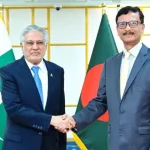“The United States determined under the Chemical and Biological Weapons Control and Warfare Elimination Act of 1991 (CBW Act) that the Government of North Korea used the chemical warfare agent VX to assassinate Kim Jong Nam, in the Kuala Lumpur airport,” State Department spokeswoman Heather Nauert said in a statement.
The additional sanctions against Pyongyang came into effect on Monday, after the US “officially” determined that the Pyongyang government was involved in Kim’s half-brother’s assassination, according to Nauert. Kim Jong-nam was killed with the banned chemical weapons agent VX on 13 February, 2017, when two women smeared his face with the substance at Kuala Lumpur International Airport in Malaysia.
Maybe unfortunate timing. The US government has formally concluded that North Korea had Kim’s bother killed with the VX nerve agent. The determination comes with automatic sanctions (but there’s not much left for the US to sanction) pic.twitter.com/Vd6BEZ9ro3
— Dave Clark (@DaveClark_AFP) March 7, 2018
The State Department’s notice, published in the Federal Register, accused the North Korean leadership of using “chemical weapons in violation of international law or lethal chemical weapons against its own nationals.”
The notice, however, failed to elaborate on specifics. The broad list of sanctions envisaged by the law includes various measures, ranging from cutting arms sales and export of sensitive technologies to halting financial assistance and bank loans, none of which seem to be relevant in the case of North Korea, already suffering from multiple rounds of Washington’s sanctions. The new, rather symbolic measures, however, will be in place for at least one year or until further notice.
The new punitive measures also come at a time when North and South are witnessing an unprecedented level of rapprochement in their relations. This fresh US jab against N. Korea, however, seems to be a drop in the bucket after, on February 23, Washington announced its largest package of sanctions against Pyongyang to date, in an effort to pressure it to give up its nuclear and ballistic missile programs.
On Tuesday, US President Donald Trump once again praised his administration’s tough stance for recent diplomatic concessions made by Pyongyang and Seoul. “I think that they [North Koreans] are sincere [with negotiations],” Trump said at a news conference after meeting with Prime Minister Stefan Lofven of Sweden, which represents American interests in North Korea. “And I think they’re sincere also because of the sanctions and what we’re doing with respect to North Korea.”
Earlier in the day, Trump told reporters that the US had “come a long way, at least rhetorically” with North Korea and “statements coming out of South Korea and North Korea have been very positive.”
While Trump expressed readiness to “go hard in either direction,” either politically or militarily, his deputy Mike Pence stressed that all options are on the table as long as Pyongyang continues with its nuclear ambitions.
Possible progress being made in talks with North Korea. For the first time in many years, a serious effort is being made by all parties concerned. The World is watching and waiting! May be false hope, but the U.S. is ready to go hard in either direction!
— Donald J. Trump (@realDonaldTrump) March 6, 2018
“Whichever direction talks with North Korea go, we will be firm in our resolve,” Pence said Tuesday. “The United States and our allies remain committed to applying maximum pressure on the Kim regime to end their nuclear program. All options are on the table and our posture toward the regime will not change until we see credible, verifiable, and concrete steps toward denuclearization.”








